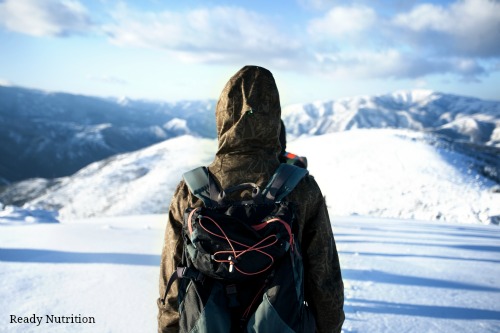A skier who got lost over Christmas was found dead near a ski resort in Truckee, CA. This man seemed to be an avid outdoorsman and felt capable enough to go off on his own. That was his first mistake. His second mistake was not accounting for a worst-case scenario with the looming horrific storm about to hit.
Getting lost is disorienting. It is easy to panic and allow your stress level to get out of control. This can result in a lot of cortisol (the stress hormone) being released into the body. This hormone increases sugars (glucose) in the bloodstream, enhances your brain’s use of glucose, and increases the availability of substances that repair tissues. Cortisol also curbs functions that would be nonessential or harmful in a fight-or-flight situation. This could result in a shutdown of systems you may need more for survival, so it’s important to stay as calm as you possibly can. The good news is, there are ways to train the body and the mind to stay calm and rational when the worst happens.
Training Your Mind
Mental preparedness is often overlooked, but of ultimate importance in any situation that could result in an emergency. Staying present in the moment and keeping calm are essential in an emergency situation. Read more about keeping your mind present in the midst of chaos.
Be Familiar With Survival Skills Before You Venture Off
If you do go out, especially during the winter and even if you know that area, as the skier did, you should always be accompanied by another. Two heads are often better than one and being able to remember different landmarks or events could help you survive. This way, if one of you panics, the other should do everything possible to remain calm and soothe your panicked buddy. You should also keep in mind that your partner may or may not be your best lifeline if you get lost, so you should choose them wisely. What both should know, is to stay put if you get lost and learn to make a snow cave or some shelter to keep you safe until you can be located if there is any chance that you’ll be lost overnight. Building a shelter of any kind is easier with two people. There’s also going to be more body heat inside, and a quicker build if you need to survive a night when temperatures plummet.
Another tip is to learn how to navigate in the snow. Everything looks very similar when the landscape is covered in snow. Learn how to use a “pace count,” which is to estimate the distance by sight and correlate both your estimated distance using your steps or paces. As you’re traversing the wilderness, it would be wise to have a good walking stick with you…something about as long as your height. This will help you to test the ground for “soft” spots and help to steady you as you make your way across the snow and ice. It’ll also help if you count your paces to determine how far you’ve gone.
Also, make sure you are dressed for the weather. While it should go without saying, dress appropriately for winter conditions in case you have to be out longer than you intended or something bad happens, like a non-forecasted storm or fog.
Layering Clothes Effectively To Stay Warm Outside In Winter
You never know when you will find yourself staring down the business end of an emergency situation. Pick up a good pair of goggles that do not fog up, and appropriate shielding for the face. Make sure you’re dressed in “all-weather” gear to combat the weather. We recommend Gore-Tex from head to toe. A GPS compass will help, but here it is important to rely on the basics because batteries do die, electronics can be fouled up by extremes in weather and temperature, and it’s always best to rely on the “primitive” tools and “skills.” Try this compass instead.
Know your terrain the best you can beforehand and make sure you are mentally and physically prepared to deal with the most intense situation your mind can conjure. If you can remain calm and make sure you know how to make a shelter and have dressed appropriately, your chances of surviving getting lost in the winter have just gone up.
This article was originally published at Ready Nutrition™ on February 18th, 2022







